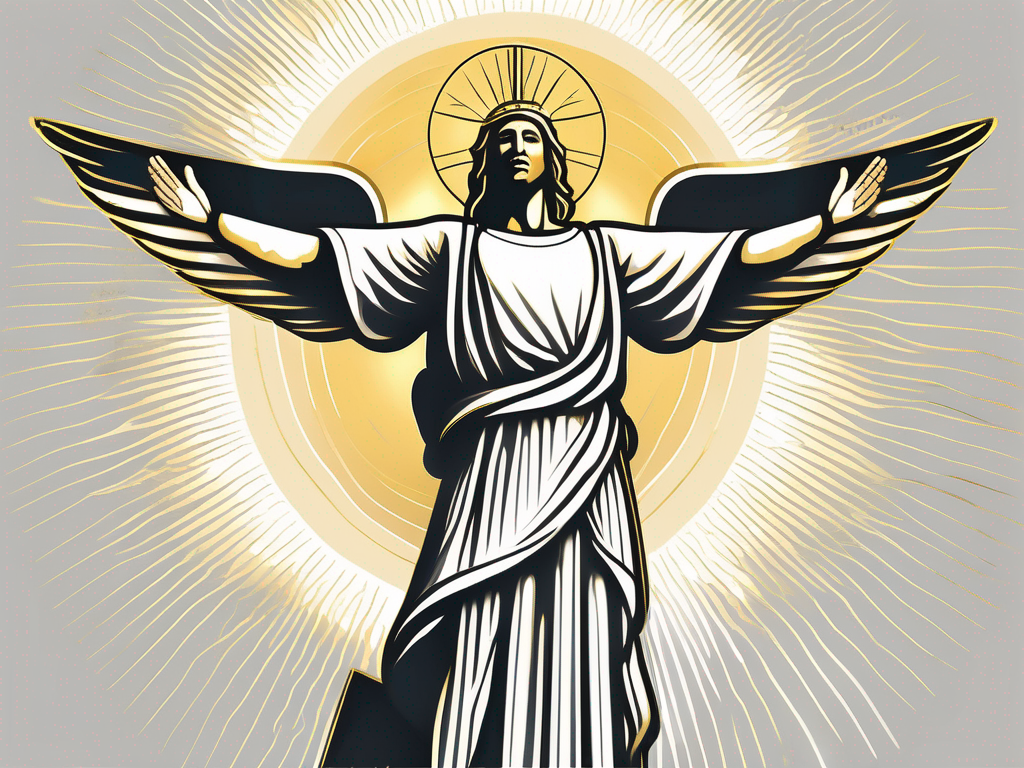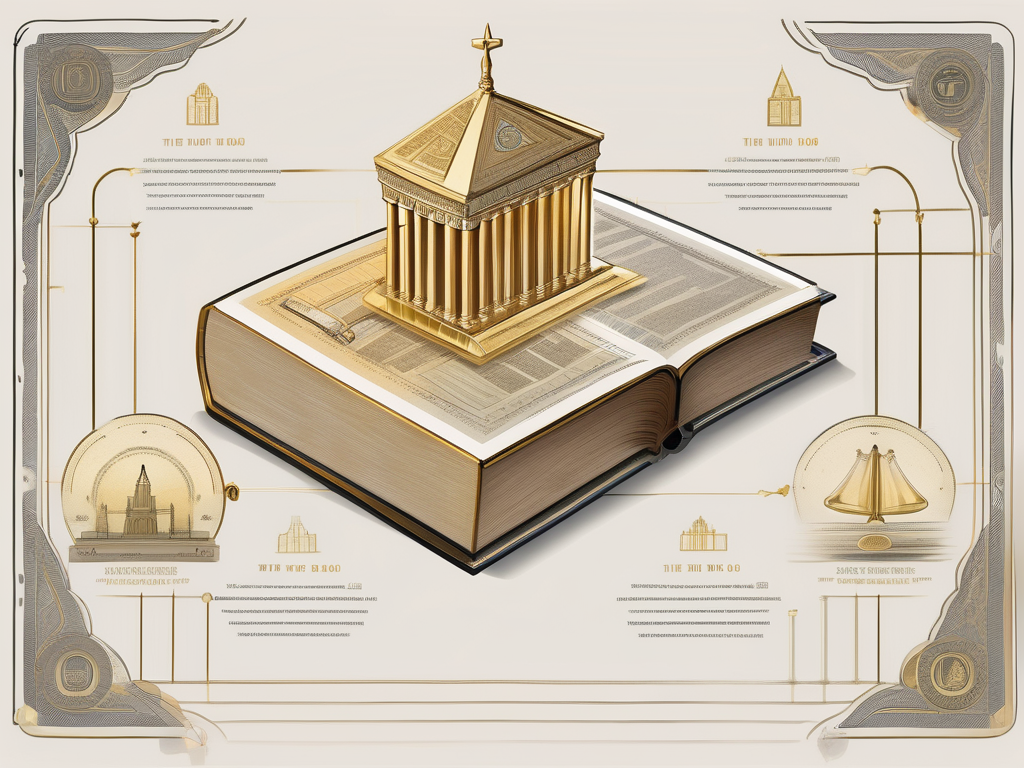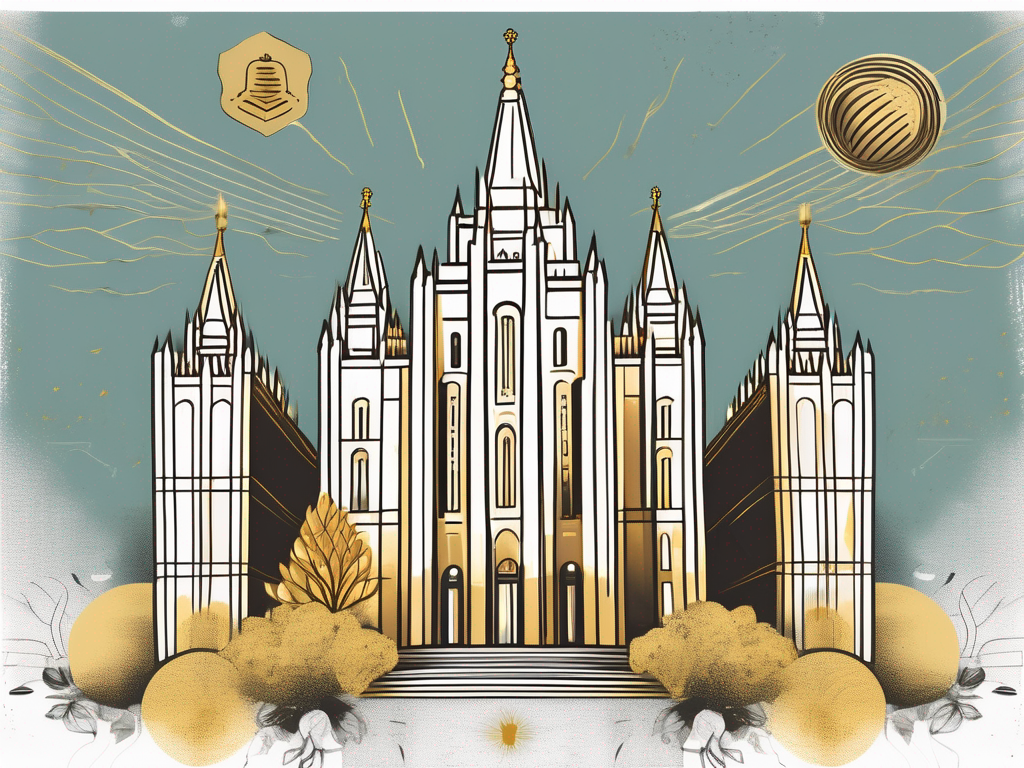In the vast landscape of religious beliefs, one question that often arises is, “Who is Jesus to the Mormon religion?” To truly understand this question, we must first delve into the world of Mormonism and its origins. Let’s explore the key beliefs, practices, and teachings of the Mormon faith to shed light on the role of Jesus within this religion.
Understanding the Mormon Religion
The Mormon religion, officially known as The Church of Jesus Christ of Latter-day Saints, was founded in the early 19th century by Joseph Smith. Its origins can be traced back to a series of divine revelations Smith claimed to have received. These revelations formed the basis of the Book of Mormon, which Mormons regard as an additional testament of Jesus Christ alongside the Bible.
The Origins of Mormonism
Mormonism emerged during a time of religious fervor and societal transformation in the United States. Joseph Smith’s revelations, including the visitation of God the Father and Jesus Christ, marked the commencement of a new religious movement. From humble beginnings, the Church of Jesus Christ of Latter-day Saints has grown into a global faith community.
The early years of Mormonism were marked by persecution and hardship. As the church expanded, it faced opposition from various groups who viewed its teachings as heretical. This led to the Mormons being driven out of several states, including Missouri and Illinois. Despite these challenges, the faith continued to grow, and in 1847, under the leadership of Brigham Young, the Mormons embarked on a treacherous journey to the Salt Lake Valley, where they established a permanent settlement.
Today, the Salt Lake City headquarters of the Church of Jesus Christ of Latter-day Saints stands as a testament to the perseverance and determination of the early Mormon pioneers. The city itself has become a hub of Mormon culture and is home to numerous religious sites, including the iconic Salt Lake Temple.
Key Beliefs and Practices
At the core of Mormon belief is a strong conviction that Jesus Christ is the Son of God and the Savior of humanity. Mormons believe that Jesus atoned for the sins of mankind and that through His grace, individuals can be forgiven and achieve salvation. The concept of eternal families and the belief in an afterlife also play significant roles in Mormon theology.
Mormons place a strong emphasis on family values and prioritize the importance of marriage and parenthood. They believe that families can be together for eternity and that the bonds formed in this life continue into the next. This belief in eternal families has led to a strong emphasis on genealogy and the practice of performing proxy baptisms and other ordinances on behalf of deceased ancestors.
Key practices within the Mormon religion include regular attendance at Sunday worship services, participation in temple ceremonies, and a commitment to living a righteous and moral life. These practices aim to create a closer relationship with Jesus Christ and strengthen individual faith.
The temple ceremonies, which are considered sacred and not open to the general public, involve various rituals and ordinances that Mormons believe are necessary for eternal salvation. These ceremonies include baptism for the dead, endowments, and sealings. The temples themselves are considered holy places where individuals can make covenants with God and receive further spiritual guidance.
In addition to their religious practices, Mormons also place a strong emphasis on education and self-reliance. The Church operates a vast network of educational institutions, including Brigham Young University, which provides a unique blend of academic excellence and religious instruction. Mormons are encouraged to pursue higher education and develop their talents and abilities to serve both their families and their communities.
Overall, the Mormon religion encompasses a rich tapestry of beliefs, practices, and values that have shaped the lives of millions of individuals around the world. From its humble beginnings to its global presence today, the Church of Jesus Christ of Latter-day Saints continues to inspire and uplift its members through its teachings and principles.
The Role of Jesus in Mormonism
Now that we have gained a basic understanding of the Mormon religion, let’s explore the role of Jesus within this faith. Mormons hold a unique perspective on Jesus, differentiating themselves from other Christian denominations through their beliefs and teachings.
Jesus holds a central and revered position in Mormon theology. He is not only viewed as the Savior but also as a divine being who once lived as a mortal on earth. Mormons believe that Jesus, as part of the Godhead, played an instrumental role in the creation of the world. They believe that He continues to guide and inspire His followers today, providing them with comfort, strength, and direction.
Furthermore, Mormons believe that Jesus appeared to prophets in ancient America, as documented in the Book of Mormon. This belief underscores the central role of Jesus within the Mormon religious narrative. It highlights the connection between the ancient inhabitants of the Americas and the teachings of Jesus, reinforcing the belief that His message is universal and transcends time and geography.
The teachings of Jesus hold immense significance in Mormonism. Mormons place great emphasis on the scriptures, referencing both the Bible and the Book of Mormon as authoritative sources of His teachings. They strive to incorporate these teachings into their daily lives, seeking to align their actions and beliefs with the principles espoused by Jesus.
Love, compassion, and forgiveness are among the core principles that Jesus taught, which resonate deeply with Mormons. They believe in the importance of loving one another, showing compassion to those in need, and forgiving others as Jesus forgave. These teachings serve as a moral compass for Mormons, guiding their interactions with others and shaping their worldview.
Mormons also strive to emulate the qualities of Jesus in their own lives. They seek to follow in His footsteps, endeavoring to cultivate empathy, kindness, and service towards others. Mormons view service as a fundamental aspect of their faith, understanding that by serving others, they are serving Jesus Himself.
In conclusion, Jesus holds a central and revered role in Mormonism. Mormons believe in His divinity, His teachings, and His redemptive power. They strive to live according to His example, seeking to embody His love, compassion, and service in their daily lives. The teachings of Jesus provide Mormons with guidance, inspiration, and a sense of purpose as they navigate their spiritual journey.
Differences and Similarities with Other Christian Denominations
While Mormons consider themselves to be Christians, their beliefs and practices differ in some significant ways from mainstream Christian denominations. Let’s examine the distinctions and common misconceptions surrounding the perspective of Jesus in Mormonism.
Jesus in Mormonism vs. Traditional Christianity
One notable difference between Mormonism and traditional Christianity lies in their respective views on the nature of God and Jesus Christ. Mormons believe in a Godhead consisting of God the Father, Jesus Christ, and the Holy Ghost as separate, individual beings with unified purposes and goals.
In Mormonism, Jesus is seen as the literal Son of God and the Savior of the world. Mormons believe that Jesus Christ was chosen to fulfill the role of the Messiah and to provide salvation for all humanity through His atoning sacrifice. They emphasize the importance of following Jesus’ teachings and striving to become more like Him.
Additionally, Mormons believe that individuals can become gods in the afterlife, a belief that diverges from traditional Christian teachings. This concept, known as exaltation, is rooted in the belief that humans are spiritual offspring of God and have the potential to progress towards godhood in the eternities. Mormons view this as the ultimate goal of life and strive to live in accordance with God’s commandments in order to achieve exaltation.
Common Misconceptions about Jesus in Mormonism
Mormonism has often been subject to misconceptions and misunderstandings, especially regarding its beliefs about Jesus. One common misconception is that Mormons do not believe in the divinity of Jesus Christ. On the contrary, Mormons emphatically affirm Jesus’ divinity and consider Him the central figure of their faith.
Another misconception is that Mormons worship Joseph Smith instead of Jesus. While Joseph Smith is revered as a prophet and the founder of the Mormon religion, Mormons worship God the Father and Jesus Christ exclusively. They believe that Joseph Smith was called by God to restore the true gospel of Jesus Christ and to establish His Church on the earth, but their worship and devotion are directed towards God and Jesus Christ alone.
It is important to note that while there are differences between Mormonism and traditional Christianity, there are also many similarities. Both believe in the divinity of Jesus Christ and the importance of His teachings. Both emphasize the need for faith, repentance, and living a virtuous life. Mormons strive to follow Jesus’ example and teachings, seeking to love and serve others as He did.
Overall, understanding the perspectives of Jesus in Mormonism can help foster greater understanding and respect between different Christian denominations. By recognizing both the differences and similarities, we can engage in meaningful dialogue and work towards unity in our shared faith in Jesus Christ.
The Impact of Jesus on Mormon Life and Culture
Beyond theological beliefs, the teachings of Jesus have a profound impact on the daily lives and culture of Mormons. Let’s examine how the reverence for Jesus is manifested in various aspects of Mormon life.
Celebrating Jesus in Mormon Rituals and Holidays
Mormons celebrate Jesus through various rituals and holidays. Christmas holds particular significance as a time to commemorate the birth of Jesus Christ. The holiday season is a time of joy and reflection for Mormons, as they gather with loved ones to exchange gifts, sing carols, and participate in nativity reenactments. The spirit of giving and selflessness that Jesus exemplified is deeply ingrained in the hearts of Mormons during this festive time.
In addition to Christmas, Mormons also observe Easter as a time to reflect on His Atonement and Resurrection, the pivotal events in Christian theology. This sacred holiday is marked by special church services, where Mormons come together to remember the sacrifice Jesus made for humanity. The resurrection of Jesus is seen as a symbol of hope and new beginnings, inspiring Mormons to strive for personal growth and spiritual renewal.
Furthermore, Mormons strive to integrate the teachings of Jesus into their daily lives, aiming to emulate His example of love, compassion, and service towards others. This is not limited to specific holidays or rituals, but rather a constant effort to live as Jesus did. Mormons actively seek opportunities to serve their communities, volunteer their time and resources, and extend a helping hand to those in need.
The Influence of Jesus on Mormon Ethics and Morality
Mormon culture places a strong emphasis on ethical and moral living, with the teachings of Jesus serving as a guide. Mormons are encouraged to follow Jesus’ commandments, which include ethical principles such as honesty, kindness, and fidelity. These teachings shape the moral compass of Mormons and guide their decision-making processes in various aspects of life.
Additionally, Mormons believe in the importance of family values and the sanctity of marriage, as mirrored in Jesus’ teachings. The emphasis on building strong, loving families contributes to the closely knit and supportive Mormon community. Mormons strive to create a home environment where Jesus’ teachings are not only taught but also lived out daily. Family prayer, scripture study, and regular family activities are common practices that strengthen the bond between family members and foster a sense of unity.
Furthermore, the teachings of Jesus influence the way Mormons interact with others in their communities. Mormons are taught to treat all individuals with respect and dignity, regardless of their background or beliefs. They strive to be good neighbors, colleagues, and citizens, seeking to uplift and support those around them. The teachings of Jesus inspire Mormons to be compassionate, forgiving, and understanding, fostering a culture of acceptance and love.
In conclusion, the impact of Jesus on Mormon life and culture goes far beyond theological beliefs. It influences the way Mormons celebrate holidays, integrate His teachings into their daily lives, and shape their ethical and moral values. Jesus’ example of love, compassion, and service serves as a guiding light for Mormons as they strive to live a life of faith and discipleship.
The Mormon Perspective on Jesus’ Second Coming
Looking towards the future, Mormons hold certain beliefs and expectations regarding Jesus’ second coming. Let’s explore the prophecies, predictions, and preparations associated with this important event.
Prophecies and Predictions
Mormons believe that Jesus Christ will return to the earth in the latter days, just as He prophesied during His mortal ministry. They draw on scriptural passages found in the Bible, Book of Mormon, and other Latter-day Saint scriptures to support this belief.
Various prophecies, such as those concerning the building of temples and the gathering of God’s people, are considered signs of Jesus’ impending return. Mormons study and interpret these prophecies to anticipate the fulfillment of these events.
Preparations and Expectations
As faithful believers in Jesus Christ’s imminent return, Mormons strive to live lives of righteousness and spiritual preparedness. They are encouraged to remain vigilant, actively serving others, and maintaining a steadfast commitment to Christ’s teachings.
Mormons anticipate that Jesus’ second coming will bring about a period of peace and harmony, known as the Millennium, during which Jesus will reign as the righteous King over the earth. This hope and anticipation inspire Mormons to continue spreading the message of Jesus’ love and salvation.
Conclusion
In conclusion, Jesus plays a central and revered role in the Mormon religion. Mormons view Jesus Christ as their Savior, divine being, and the source of their hope and salvation. Understanding the unique perspective of Jesus within the Mormon faith sheds light on the beliefs, practices, and values that shape the lives of its adherents. Through celebrating His teachings and anticipating His second coming, Mormons find comfort and guidance in their faith.












